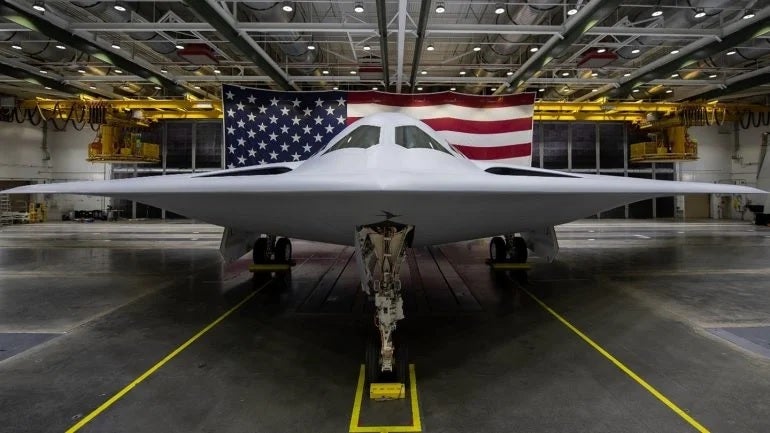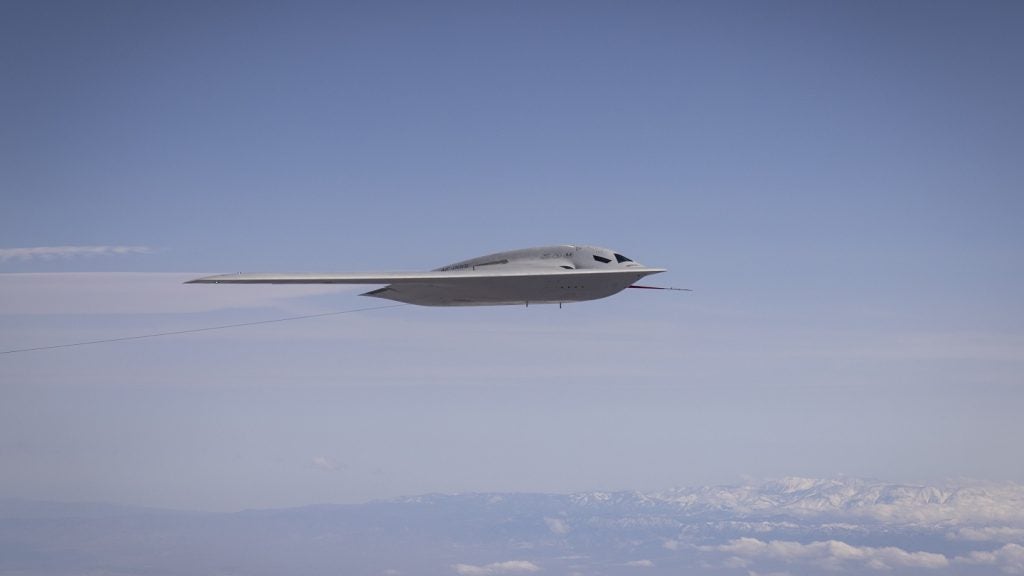An Australian non-profit research organisation has recommended that Australia acquire the B-21 stealth bomber from the United States, as part of a series of initiatives intended to further cement Canberra’s ties with Washington.
In a 7 August 2024 paper, the Institute for Public Affairs (IPA) provided six recommendations that it stated Australia should undertake, one of which was the acquisition of the B-21 Raider “as an additional element” to the AUKUS trilateral defence and security initiative being undertaken between Australia, the US, and the UK.
Not only should Australia seek to procure the B-21, but also offer “to host a US B-21 contingent” in order to “strengthen deterrence in the 2020s and manage the risk of delays in the AUKUS submarine”, the IPA said.

The suggested purchase of the B-21 Raider by Australia would serve to provide a non-nuclear long-range deterrent more quickly than is going to be the case with the AUKUS nuclear-powered attack submarines (SSN), which are due to enter service from the early-2040s onwards. Prior to that, Australia will lease up to four Virginia-class SSNs from the US Navy as a stop-gap measure.
“Our first policy recommendation is that the government needs an AUKUS Plan B – a strategy which will help to deliver military capability earlier and create a fallback position, in case circumstances mean the nuclear submarines can’t or won’t be delivered,” the IPA stated in its paper, ‘The Defence of Australia’.
“Our AUKUS Plan B is actually the B-21 Raider strike bomber,” the IPA said.
Would B-21 acquisition for Australia make sense?
Designed to replace the existing B-1 Lancer and B-2 Spirit bombers in USAF service, the B-21, the world’s first 6th generation aircraft, has entered low-rate initial production.
In May 2024, the USAF stated that since its formal unveiling in December 2022, the B-21 had begun flight testing at Edwards Air Force Base where “it continues to make progress”, officials said at the time.
The USAF’s minimum production goal is for at least 100 aircraft, which are currently being manufactured by Northrop Grumman. Analysis carried out by GlobalData details that, adjusted for inflation, the per unit cost is estimated at around $750m, a significant decrease from the $2bn each of the older 20 B-2 bombers.
“The benefit of ‘Plan B-21’ is that it will deliver significant long range strike capability to the ADF sooner than nuclear powered submarines,” the IPA stated, adding the platform could enter US service by 2027.
“We judge that a capacity to operate and maintain the platform in the Indo-Pacific would add a powerful deterrent option, earlier, to the US and to Australia,” the IPA said.
B-21 over AUKUS SSN: a cheaper option
A further factor for consideration was the proposed cost of the AUKUS SSN submarines, of which it is thought up to five are planned to be acquired, which runs into the hundreds of billions of dollars over the lifetime of the programme.
While expensive, any potential cost of a B-21 acquisition in the theoretical scenario that the US would permit its sale, would be significantly less, depending on how many aircraft would be procured.









